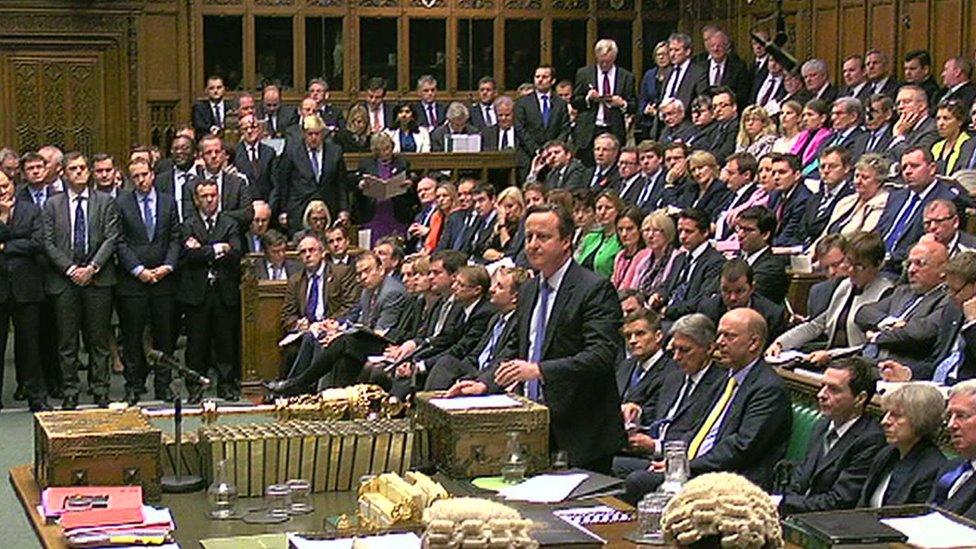Syria air strikes: RAF Tornado jets carry out bombing
- Published
- comments
Michael Fallon: "I can confirm that four British tornados were in action attacking oil fields in eastern Syria"
RAF Tornado jets have carried out their first air strikes against the self-styled Islamic State in Syria, the Ministry of Defence has confirmed.
Four Tornados from RAF Akrotiri in Cyprus took part in the operation soon after MPs voted to approve bombing.
The "successful" strikes hit the IS-controlled Omar oil fields in eastern Syria, the defence secretary said.
But PM David Cameron said the campaign would take time, saying "we're going to need to be patient and persistent".
"It is complex and it is difficult what we are asking our pilots to do, and our thoughts should be with them and their families as they commence this important work," Mr Cameron said.
MPs overwhelmingly backed UK military action against IS - also known as Daesh - in Syria, by 397 votes to 223, after a 10-hour Commons debate on Wednesday.
Defence Secretary Michael Fallon said the MoD would be assessing the damage done by the bombing later, but the aim was to strike "a very real blow on the oil and revenue on which Daesh depends".
He had personally approved the targets ahead of the Commons vote, he said.
David Cameron: "Compelling case" to extend airstrikes to Syria
Mr Fallon confirmed that eight more jets - two Tornados and six Typhoons - were being sent to to join the eight existing jets at the Akrotiri base.
The Typhoons have left RAF Lossiemouth in Moray, Scotland, to join the air strikes.

Analysis
By BBC defence correspondent Jonathan Beale, at RAF Akrotiri in Cyprus
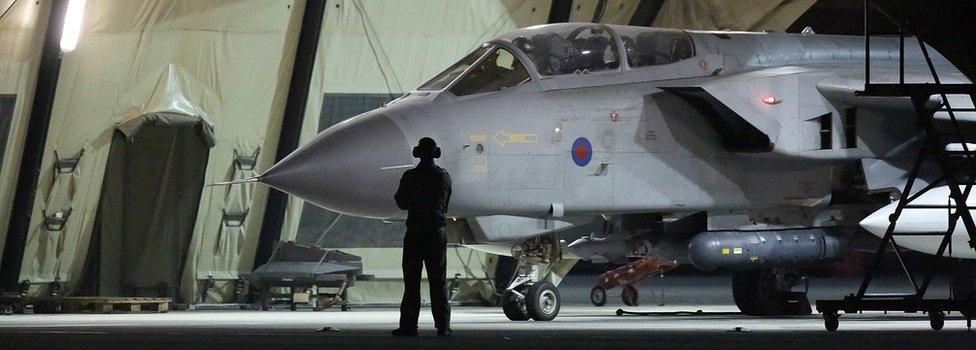
We watched the orange/blue glow from the engine afterburners of a pair of Tornados disappear into the night sky. Each aircraft was carrying three 500lb Paveway bombs.
Less than an hour later, they were followed by a second pair loaded with the same weapons.
The use of high precision Paveway bombs, rather than the Brimstone missile, suggests they were hitting static rather than moving targets.
We waited for the first pair of Tornados to return to base. They landed after just over three hours in the air. As they taxied on the runway, it was clear to see their bombs were missing.

Mr Fallon said there was a "very rigorous" process by which targets were chosen, and all British military action would adhere to "very strict rules of engagement".
Asked how long the UK might be involved in the coalition campaign against IS in Syria, he said it would "not be quick", but argued it had not been right to leave bombing to other air forces.
On the issue of ground forces, he said the prime minister of Iraq had made it very clear he did not want Western troops on the ground to fight IS.
But the UK could still achieve "plenty from the air", including cutting off IS sources of income such as oil fields, he added.


The view from Damascus
By BBC chief international correspondent Lyse Doucet
This morning's newspapers in Damascus reiterate criticism Syrian officials have made for years about the West's engagement here.
"Britain didn't ask permission from Syria's government," declares the state news agency SANA. "Cameron told lies," it says.
Syrian officials insist Britain and its allies must follow Russia's example and co-ordinate their campaign with Syrian government forces. If they don't, they warn, they simply won't succeed.
The deadlock over President Assad's future role will continue to block the formation of a unified command against a common enemy. It will also stand in the way of Britain's pledge that it will now also focus on finding a negotiated way out of this war.
Syrian activists and opposition groups feel bitterly let down that the West did not give them this kind of military support to help remove President Assad.
And the many Syrians exhausted by war want, most of all, to believe Britain's promise that it's stepping up the fight to "win the peace" - as hard as that is.

In a statement, the MoD said, external the British jets - supported by a Voyager air refuelling tanker, an unmanned Reaper drone and other coalition aircraft - had attacked six targets.
"Carefully selected elements of the oilfield infrastructure were targeted, ensuring the strikes will have a significant impact on Daesh's ability to extract the oil to fund their terrorism," it said.
What hardware has the RAF deployed from the UK?
Before the attacks, pilots used the aircrafts' sensors to confirm "no civilians were in the proximity of the targets", it stated.
BBC security correspondent Frank Gardner said, external the Omar oilfield - a target of the UK airstrikes - was one of eight oilfields targeted by coalition forces.
The RAF has been carrying out operations against IS in Iraq since last year.
To date, the US has conducted nearly all of the air strikes in Syria and Iraq, with France, Australia and Denmark also taking part.
Mr Cameron said he was glad there had been "strong support" from Parliament for the UK to extend its strikes to Syria, and said he believed the move would also be supported by Muslim countries.
French foreign affairs minister Laurent Fabius welcomed UK military action, adding: "A fortnight after the 13 November [Paris] attacks, this is a concrete demonstration of solidarity with our country."
A total of 66 Labour MPs - 29% of the parliamentary party - sided with the government as it secured a larger than expected Commons majority.
Labour leader Jeremy Corbyn had argued the case for war "does not stack up" - but senior Labour figures, including 11 members of his shadow cabinet, were among those who voted with the government after they were given a free vote.
Shadow foreign secretary Hilary Benn, who was applauded by MPs for a speech in support of bombing, said: "All of our thoughts today are with the brave men and women of the Royal Air Force and we pray for their safe return."

- Published3 December 2015
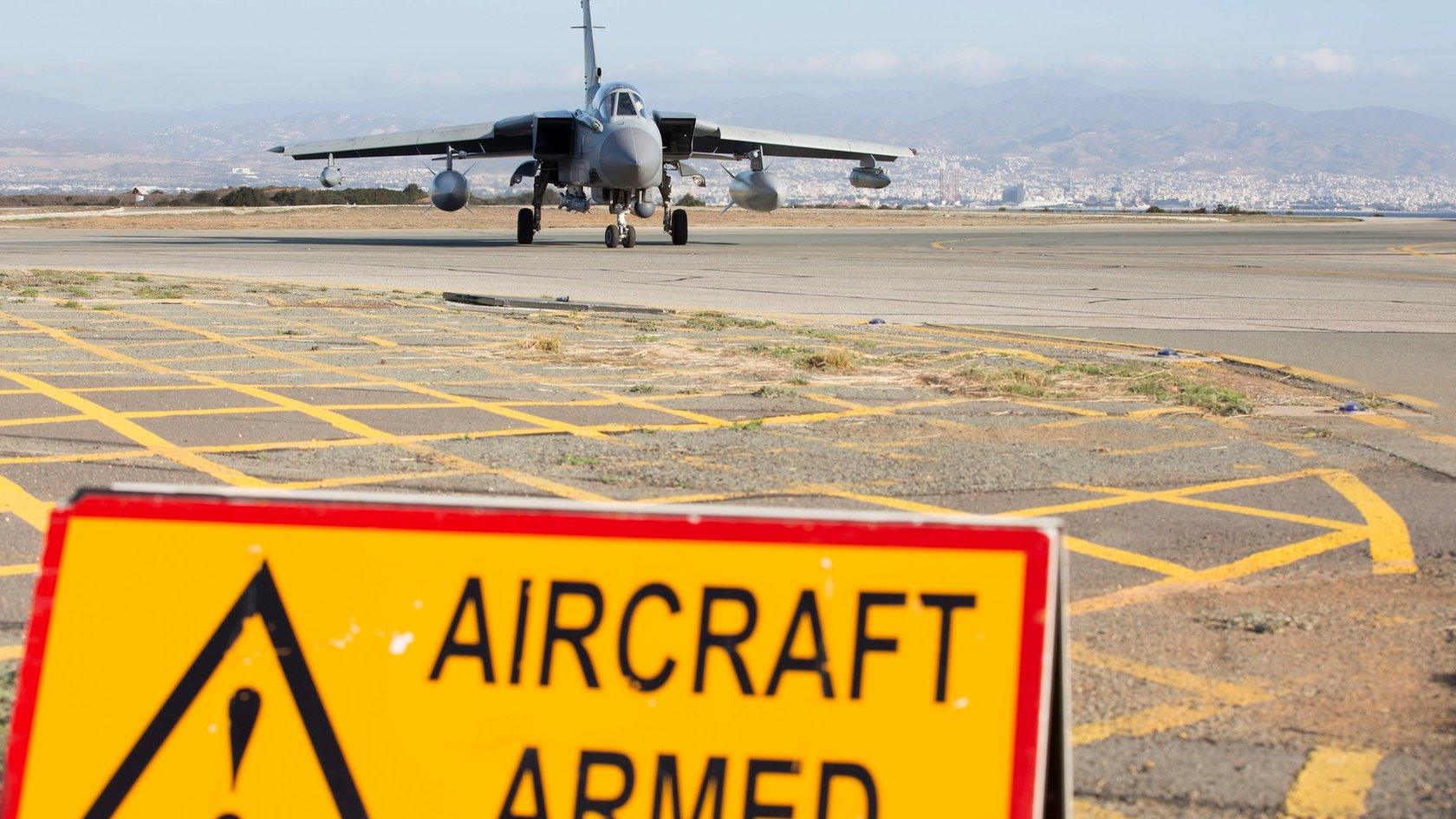
- Published3 December 2015
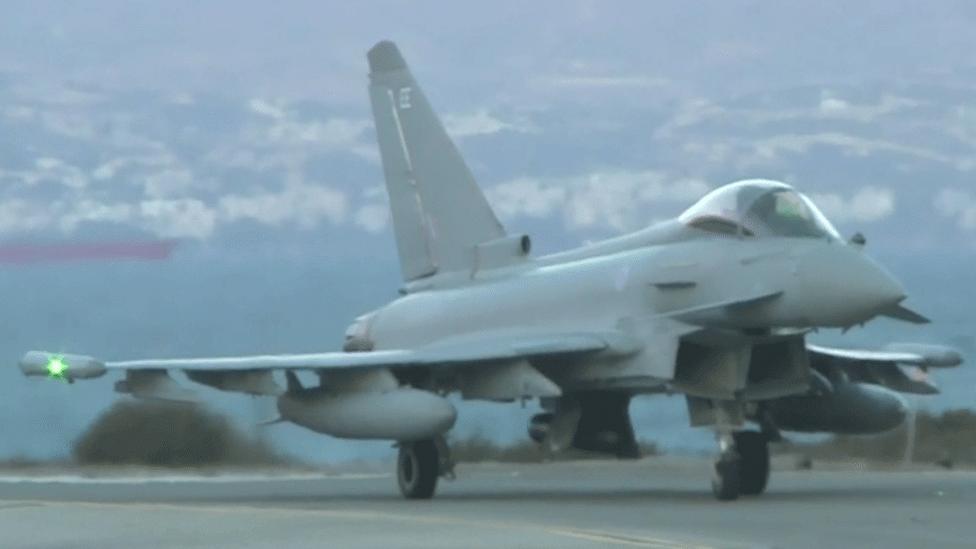
- Published3 December 2015
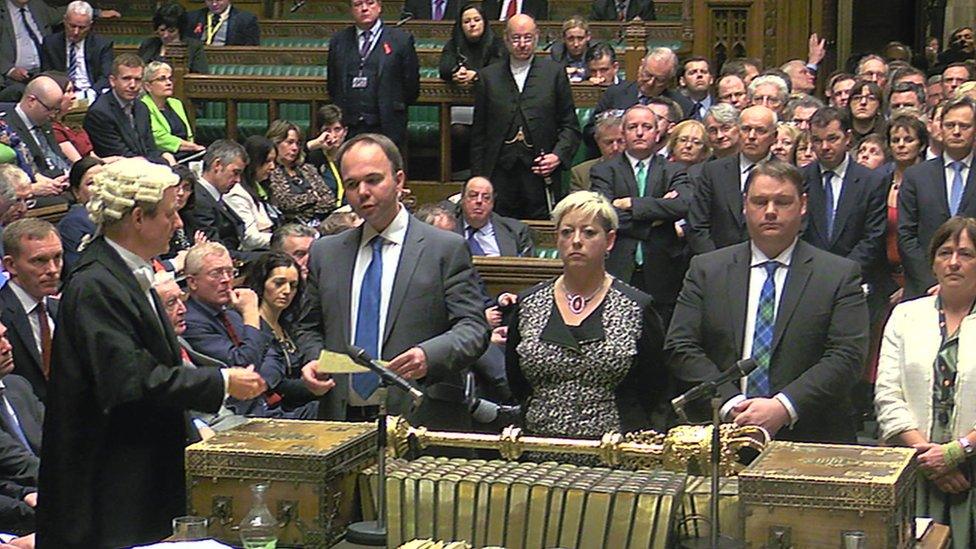
- Published2 December 2015
